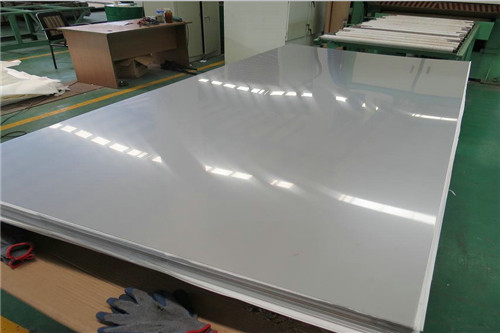
| 3/16" | 1/4" | 5/16" | 3/8" | 7/16" | 1/2" |
|---|---|---|---|---|---|
| 4.8mm | 6.3mm | 7.9mm | 9.5mm | 11.1mm | 12.7mm |
| 9/16" | 5/8" | 3/4" | 7/8" | 1" | 1 1/8" |
| 14.3mm | 15.9mm | 19mm | 22.2mm | 25.4mm | 28.6mm |
| 1 1/4" | 1 1/2" | 1 3/4" | 2" | 2 1/4" | 2 1/2" |
| 31.8mm | 38.1mm | 44.5mm | 50.8mm | 57.2mm | 63.5mm |
| 2 3/4" | 3" | 3 1/2" | 4" | ||
| 69.9mm | 76.2mm | 88.9mm | 101.6mm |
Alloy 17-4PH is a precipitation hardening martensitic stainless steel with Cu and Nb/Cb additions. The grade combines high strength, hardness (up to 572°F /300°C), and corrosion resistance. Mechanical properties can be optimized with heat treatment. Very high yield strength up to 1100-1300 MPa (160-190 ksi) can be achieved.
General Properties
Alloy 17-4PH (UNS S17400), Type 630, is a chromium-nickel-copper precipitation-hardening martensitic stainless steel with an addition of niobium. 17-4PH combines high strength and hardness with good corrosion resistance.
The alloy is furnished in the solution annealed condition (Condition A). It should not be used at temperatures above 572°F (300°C) or for cryogenic service. Optimal mechanical properties can be obtained by subjecting the alloy to age hardening heat treatments. Heat treatment in the 900°F (482°C) range produces the highest strength.
The corrosion resistance of Alloy 17-4PH is comparable to 304 stainless steel in most environments, and is generally superior to the 400 series stainless steels. It is used in applications where the combination of moderate corrosion resistance and unusually high strength are required.
Alloy 17-4PH can be easily welded and processed by standard shop fabrication practices. It is magnetic.
Applications
Aerospace — structural and parts
Biomedical — hand tools
Chemical Processing
Food Process Equipment
Gate Valves
Mechanical Components
Nuclear Waste Processing and Storage
Oil and Gas Production — foils, helicopter deck platforms, etc.
Pulp and Paper — paper mill
equipment
Standards
ASTM........A 693
ASME........SA 693
AMS..........5604
Corrosion Resistance
The corrosion resistance of Alloy 17-4PH is comparable to 304 stainless steel in most environments, and is generally superior to the 400 series stainless steels. It is used in applications where the combination of moderate corrosion resistance and unusually high strength are required. Alloy 17-4PH has corrosion resistance comparable to 304L in some chemical, dairy, food, paper and petroleum applications.
Alloy 17-4PH in the solution-annealed condition (Condition A) should not generally be put in service. The alloy is subject to brittle fractures and more sensitive to chloride stress corrosion cracking than the aged material.
If risks of chloride stress corrosion cracking are present the higher aging temperatures should be selected over 1022°F (550°C), preferably 1094°F (590°C). 1022°F (550°C) is the recommended tempering temperature in chloride service. 1094°F (590°C) is preferred in H2S media.
Alloy 17-4PH is subject to crevice corrosion and pitting attack when exposed to stagnant seawater for a duration of time.